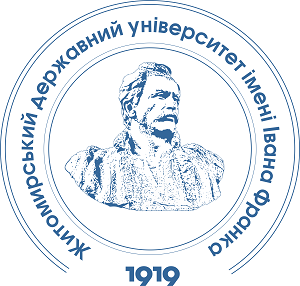PUPILS’ MOTIVES FOR CHOOSING THE TEACHING PROFESSION
DOI:
https://doi.org/10.32782/psy-2023-1-3Keywords:
motive, motivation, teacher, profession, formation, interestAbstract
This study delves into the intricate web of motives underlying students' choices to pursue a career in the field of education. To unravel this complex puzzle, the researchers employed a multifaceted approach involving questionnaires, student essays, one-on-one interviews, analyses of school profiles, and personal student records. By tapping into various sources of information, the researchers aimed to capture the essence of the decision-making process behind the selection of the teaching profession. The initial focus was on the role of extracurricular activities within the school environment. The researchers observed how participation in activities such as being a counselor for younger students, being part of student councils, or engaging actively in the school's communal life had a profound impact on nurturing an interest in teaching. This hands-on involvement allowed students to test their inclinations and interests practically, leading many of them to make informed decisions to join pedagogical institutions. Another vital dimension explored was the significance of personal characteristics and values in driving the choice towards the teaching profession. Many students shared stories of a deep-seated love for children, a desire to communicate and educate them, and a wish to contribute positively to their development. These intrinsic motivations reflected a moral compass that was aligned with the nurturing aspects of teaching. Additionally, the influence of influential figures, such as teachers and parents, was found to be a powerful driving force. Students recounted instances where inspiring educators kindled their interest in teaching by making learning engaging and relatable. Similarly, some students were motivated by their parents' aspirations or experiences, which added weight to their career choice. Interestingly, for some students, the attraction towards teaching sprouted from their affinity for a particular subject. The spark ignited by a passionate teacher who conveyed the subject's nuances effectively often led these students towards considering a career in education. Literary works also played a role in shaping their perceptions, portraying educators in a positive light and fueling the desire to be a part of this noble profession. However, amidst these profound motives, a subset of students exhibited ambivalence. Their reasons for choosing the teaching path were less definitive, sometimes arising from seemingly random factors. This uncertainty highlighted the need for a more comprehensive approach to guide these students, potentially involving psychological counseling services within schools. In conclusion, this study sheds light on the intricate journey that students undertake while deciding to become educators. By employing a holistic methodology encompassing various sources of information, the research provides valuable insights into the multifaceted world of motives influencing the choice of the teaching profession. This exploration holds the potential to enhance pedagogical training programs, as well as counseling services within schools, ultimately fostering a more informed and motivated generation of future teachers.
References
Majidov J. The role and importance of psychological and pedagogical knowledge in the theoretical and practical training of the future teacher. JSPI Scientific Publications Archive. 2020. Vol. 1 (51).
Majidov J. Modeling and placement of professional educational institutions based on a multi-stage system. JSPI Scientific Publications Archive. 2020. Vol. 1 (48).
Majidov J. Pedagogical vocational guidance has its own specifics. JSPI Scientific Publications Archive. 2020. Vol. 1 (4).
Majidov J. Mental activity and its structures. JSPI Scientific Publications Archive. 2020. Vol. 1 (67).






